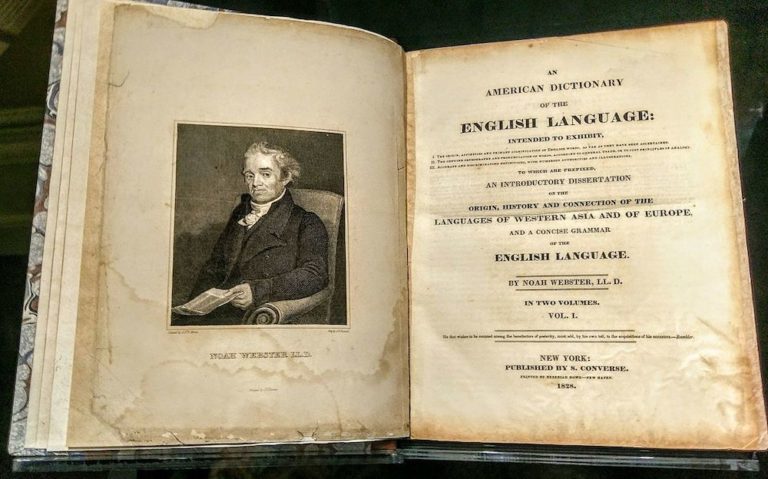
When it comes to the spelling and definition of words in US English, there is no greater authority than Merriam-Webster’s Dictionary. At the Paris Review website, Jess McHugh details how Noah Webster saw his dictionary as very much a nationalist project. Here’s an excerpt:
Merriam-Webster’s resistance to an administration steeped in nativism, however, is complicated by the dictionary’s original goal to create and preserve a monolithic American culture. Noah Webster Jr., the dictionary’s founding author, was one of the first American nationalists, and he wrote his reference books with the express purpose of creating a single definition of American English—one that often existed at the expense of regional and cultural variation of any kind.
In the century following the Revolutionary War, Webster’s American Spelling Book became so ubiquitous in the newly formed United States—selling an estimated hundred million copies—that its sales were outpaced only by those of the Bible. “To diffuse an uniformity and purity of language in America, to destroy the provincial prejudices that originate in the trifling differences of dialect,” wrote Webster in the preface of the speller, “is the most ardent wish of the author.” By capturing language not as it was written in England but as it was spoken in the U.S., Webster hoped to lay the foundation for a uniform American speech that could supersede European linguistic traditions. Where other instructional texts might capture existing modes of speech, he sought to elevate a new way of speaking, and in some sections the speller reads more like a political treatise than a children’s schoolbook.
Image via Paris Review.